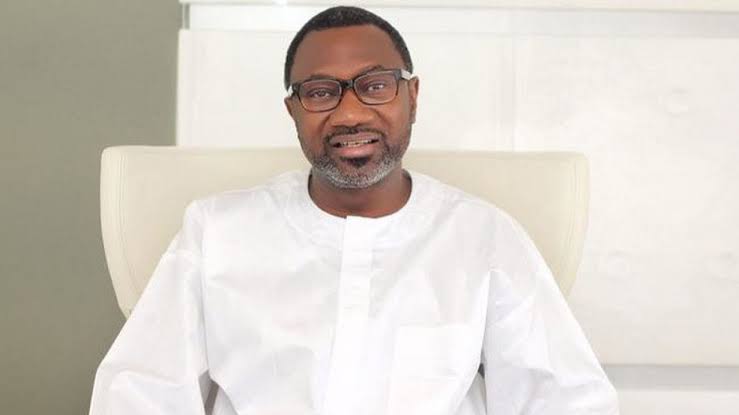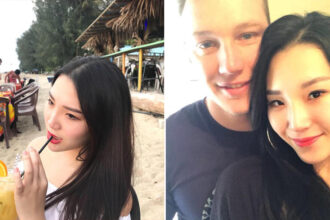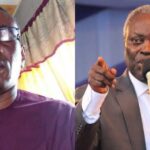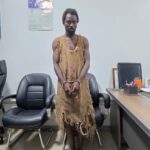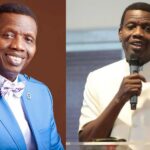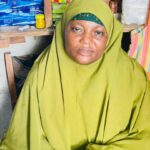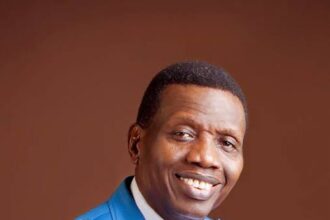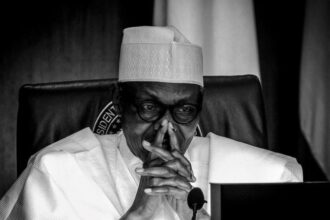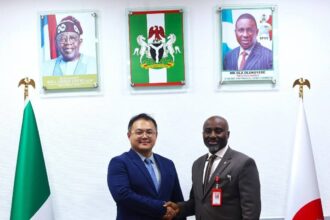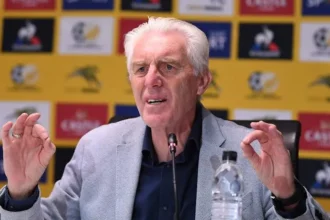Lagos moves in pulses—heat, noise, and motion interwoven in a rhythm that can swallow a person whole. On a seemingly ordinary Tuesday morning in 2018, one man stepped into that current and disappeared into it. Femi Otedola, a name known across continents, became just another body navigating the chaos of Oshodi.
The Molue hissed to a stop, its doors opening to a tide of commuters. Among them, Otedola boarded without ceremony, his presence unmarked by guards, cameras, or whispered recognition. He breathed in the scents of the city: the dust of asphalt, the tang of exhaust, the faint aroma of snacks from hawkers. Each footstep and careful shift of balance blended him further into the ordinary.
Around him, the city carried on unperturbed. Passengers juggled their books, bags, and daily errands, unaware that one of Africa’s wealthiest men stood among them. Nothing stirred: no glances lingered, no recognition flickered, no interaction betrayed the extraordinary hidden in plain sight.
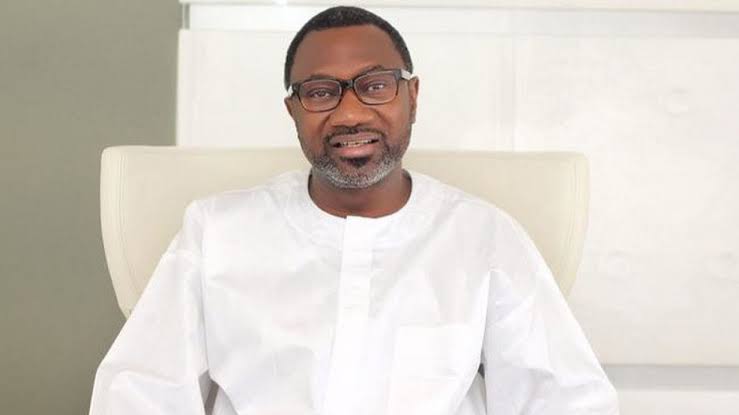
In that quiet anonymity, something subtle and unsettling unfolded—a collision of worlds that went unseen, an unspoken lesson in what it means to be present yet invisible, powerful yet unrecognized. The ride would not be recorded in headlines or photographs. Its significance existed in the fleeting intersection of ordinary lives with someone capable of shaping them, unnoticed and unclaimed.
Boarding Without Announcement
On that morning in 2018, Femi Otedola approached the Oshodi bus terminal quietly. Unlike the spectacle often associated with billionaires—limousines, security details, or media entourages—he chose simplicity. Reports from eyewitnesses and journalists covering the ride note that Otedola wore casual clothing, blending into the crowd of commuters bustling toward their destinations.
He did not announce himself. No one shouted his name, and no camera crews followed. Instead, he joined the line of waiting passengers, exchanging a nod or a brief smile with the conductor as he approached the Molue. The conductor, focused on processing fares and organizing the flow of boarding passengers, treated him as just another commuter.

Once at the bus door, Otedola stepped in carefully, timing his entry with the movement of other passengers. He adjusted his posture to maintain balance, navigating the narrow threshold of the vehicle without drawing attention. In these small, deliberate actions, he demonstrated an acute awareness of space and social context—blending in seamlessly with ordinary Lagosians.
Observers later noted that this quiet, unassuming boarding was significant. It was not merely about concealment; it was an active choice to experience the bus as it exists for millions of commuters daily. In that moment, Otedola’s presence was both remarkable and invisible: remarkable because of who he was, invisible because of how he chose to exist in the space.
Finding a Place to Stand
Once aboard, the challenge became spatial. Molues in Lagos are notorious for crowding, and finding a stable position requires constant adjustment. Otedola navigated the aisle carefully, shifting to avoid bags, hands, and elbows. Reports noted that he held onto a vertical pole, balancing with one hand while keeping his weight centered, a technique familiar to seasoned commuters.
Nearby passengers jostled slightly with each stop or turn, yet none appeared to recognize him. Otedola adapted to the movement of the bus, subtly stepping aside for boarding passengers and maintaining a posture that minimized disruption.

In this small, continuous negotiation, he experienced firsthand the physical and social dynamics of shared urban transport—something inaccessible to most individuals of his socioeconomic status.
Observing Micro-Economies
While standing, Otedola’s attention shifted to the informal commerce taking place within the bus. According to reports, Passengers navigated the aisle, balancing stacks of books, CDs, and other small items for sale. One young man held a thin paperback, calling out titles for passengers to glance at, while a woman offered self-published novels tucked under her arm, sliding them past seated commuters for consideration.
Naira notes exchanged hands in quick succession, accompanied by brief discussions of price and content. Another passenger circulated a small box of music CDs, describing tracks in a hurried, practiced rhythm. Otedola observed quietly, absorbing the energy of these micro-economies without interrupting.
In this moment, he became an unobtrusive observer of urban creativity and entrepreneurial ingenuity. The aisle was a temporary marketplace, where ideas, stories, and culture were as valuable as currency, and where success depended on persistence, timing, and the attention of fellow commuters.
For a billionaire accustomed to different arenas of commerce, this was a rare immersion into the day-to-day economic pulse of Lagos.
Enduring the Commute
The true challenge began: the relentless motion of the Molue through Oshodi’s congested streets. Otedola adjusted his stance, gripping the vertical pole with one hand, while his other balanced the slight sway of the crowded aisle. Each stop and sudden acceleration required constant attention, and every jolt forced a recalibration of weight and position.
The bus groaned under the weight of passengers and merchandise. Books, CDs, and small items shifted with each turn, and Otedola’s presence demanded careful maneuvering to avoid toppling trays or knocking over belongings. He moved with deliberate patience, leaning subtly, shifting his feet, and following the micro-patterns of crowd movement.
Time passed in measured increments. The ride, which might take mere minutes under ideal conditions, stretched with traffic snarls, horn blares, and the intermittent opening of doors for new passengers. Otedola’s endurance was both physical and mental: standing upright for the duration, maintaining balance, and responding to unexpected bumps, all while absorbing the dynamic environment around him.
By the end of the commute, the experience left him with a clear sense of the demands and rhythm of daily life in Lagos. For a brief stretch, he had navigated the city on its terms: standing amid a shifting crowd, negotiating space and movement, and engaging directly with the unpredictable patterns of the streets.
The Faces That Didn’t Recognize Him
As the Molue wove through the city, Otedola’s presence went entirely unnoticed. Commuters carried on their routines, Not a single glance lingered on him; no whispered recognition, no sudden double-take—just the steady rhythm of ordinary life.

In this invisibility, there was a quiet, almost ironic lesson. The people around him—many of whom were aspiring entrepreneurs, students, or early-stage creatives—shared a space with a billionaire without ever realizing it. Analysts and journalists later noted that they had a fleeting opportunity to engage with someone of immense influence, insight, and connections, yet it passed entirely unrecognized.
The missed chance was not dramatic or obvious. There was no confrontation, no conversation left unsaid. It existed in micro-moments: a student flipping past a book that might have been recommended by a patron with deep knowledge of publishing; a young vendor missing the chance to pitch their creative work to someone who could open doors. The possibilities were quiet but significant—a subtle reminder of how often opportunity walks past unnoticed, even in plain sight.
Otedola, for his part, did not call attention to himself. He moved with discretion, observing the energy of the passengers, absorbing their routines, and experiencing the ordinary flow of Lagos life. In doing so, he became both participant and witness—a figure present in the room but absent from awareness, highlighting how proximity alone does not guarantee recognition or engagement.
Exiting and Blending Back Into the City
As the Molue approached its final stop, Otedola prepared to disembark. He adjusted his grip on the handrail, shifted his weight carefully to align with the opening door, and stepped down into the uneven pavement of the Oshodi streets. Every movement was deliberate; the ground was crowded with other passengers, hawkers selling books and CDs, and pedestrians navigating their own routines.
Observers noted that he exited with the same discretion that had marked his entire ride. There was no entourage waiting, no announcement, no sudden recognition. He simply merged into the flow of the street, a figure among thousands, moving alongside traders, students, and daily commuters who remained unaware of his presence.
The blending back into the city was almost seamless. Otedola navigated through the crowds, walking past street vendors and traffic without altering the natural rhythm of the space. Witnesses later described it as an unremarkable exit to the casual eye—but remarkable in the contrast between his public profile and the anonymity he experienced.
The significance of this moment lies in its unvarnished truth about urban life. In Lagos, proximity does not equate to attention, and visibility is dictated by context, not fame. Even someone as prominent as Otedola could participate fully in the city’s everyday rhythm without disrupting it, emphasizing how ordinary spaces operate independently of social hierarchies.

Lessons from the Ride
Femi Otedola’s Molue journey was brief in duration but dense in experience. Standing, shifting, and observing, he absorbed the patterns of movement, commerce, and endurance that define daily life for millions of Lagosians. From his perspective, several clear takeaways emerged:
1. Everyday life demands adaptability. The simple act of balancing in a crowded aisle, responding to sudden stops, and negotiating limited space revealed the constant, often invisible adjustments commuters make. Otedola experienced directly how small, deliberate decisions sustain daily motion.
2. Urban micro-economies are intricate. The trading of books, CDs, and other items demonstrated that informal commerce operates on attention, persistence, and timing. Observing these exchanges highlighted how entrepreneurial activity thrives in confined, mobile spaces—a microcosm of Lagos’ larger economic ecosystem.
3. Physical endurance is routine. The bumps, sways, and crowded aisles underscored the resilience required of commuters. Even brief exposure provided insight into the stamina and focus demanded by daily transport, emphasizing how routine physical effort shapes urban existence.
4. Recognition is context-dependent. Despite his public prominence, Otedola was treated as any other passenger. This demonstrated that visibility and attention are contingent on environment: fame does not override the structural and social realities of shared public spaces.
5. Observation enriches understanding. By simply participating without drawing attention, Otedola gained firsthand insight into the layered realities of Lagos: the interactions, small negotiations, and flows that define urban life. His choice to immerse himself rather than remain removed allowed him a rare, unfiltered perspective.
In sum, the ride offered more than a novelty story about a billionaire on a Molue. It provided direct, action-based insight into Lagos’ urban ecosystem, revealing how ordinary commuters navigate physical, social, and economic challenges with quiet efficiency. Otedola’s experience shows that immersion—even brief—can illuminate realities that observation from afar never fully captures.
Conclusion: The Missed Opportunity
In that brief Molue ride, thousands of Lagosians brushed past a figure whose influence could have opened doors, offered guidance, or inspired new ventures—yet not one recognized him. Femi Otedola, a billionaire whose name commands headlines, moved among the crowd like any other passenger, invisible in plain sight.
The missed opportunity is profound, though quiet. It was a chance to connect with someone whose resources, experience, and perspective could have shifted possibilities—an intersection of ordinary lives with extraordinary potential that passed unnoticed. In that anonymity lies a subtle lesson: value is not always apparent, and encounters that could transform trajectories often go unclaimed.
But the weight of this missed moment is not solely on the observers. It also illuminates the nature of human attention, shaped by routine, distraction, and the pace of life. The street flows relentlessly, and even the remarkable can become background noise when perception is limited to immediate concerns.
Otedola’s silent journey highlights both sides of the encounter: the latent power of presence and the fragility of recognition. Opportunities exist not only in grand gestures but in shared space, in fleeting interactions, in everyday moments where potential meets chance—and in this case, slipped quietly by.
It is a meditation on the subtle geometry of life: how proximity does not guarantee impact, how moments of connection can be invisible, and how the extraordinary can remain unobserved, waiting for awareness to catch up. In the Molue’s crowded aisle, the city carried on, unaltered, while a rare chance—a one-in-lifetime encounter with influence—passed unnoticed.

